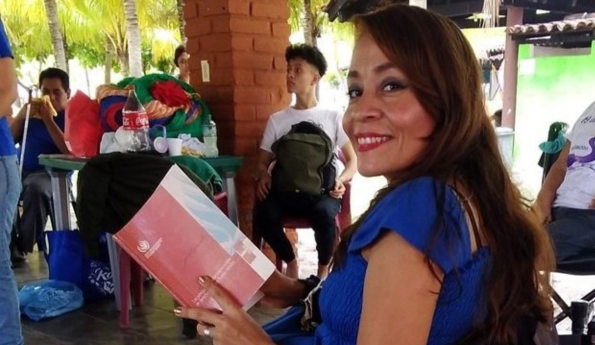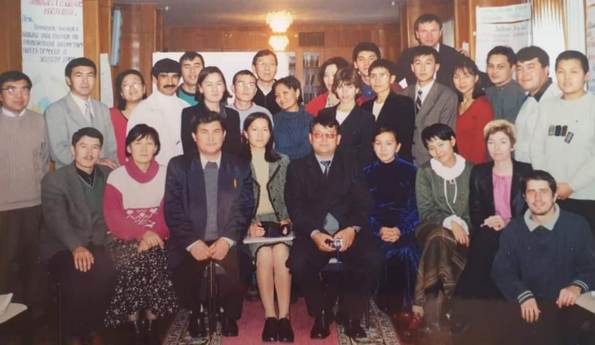This story is part of our series on Counterpart’s Food for Progress program in Guatemala.
As I walked into a small, independently-owned espresso bar in Brussels this morning, I immediately notice the photographs on the wall. The coffee beans sourced by the cafe, the captions point out, are from Guatemala, and pictures of coffee farmers picking cherries off their coffee trees flank the brick walls. I smile, thinking of all of the coffee farmers I met while in Guatemala recently and how Counterpart is working with them to gain access to new markets so they can sell their coffee at a fair price to places like Belgium.
In Guatemala, 50% of people work in agriculture, with a large percentage of that focused on coffee production. With so many people dependent on this industry, farmers often work together, organizing into groups ranging from small networks of neighbors called “CADERs,” to regional associations and co-ops, to national associations and federations. Counterpart is working with all of these groups to ensure that Guatemalan farmers have access to the skills, networks, and partnerships necessary to provide for their families – with a specific emphasis on building the capacity of women in agriculture.
While visiting the Western Highlands I met many coffee farmers from CADERs, co-ops, and associations, but it was the story of two female coffee producers that really stayed with me in the weeks following my trip.
Asociacio de Agricultores El Esfuerzo de San Pedro Necta (ASASAPNE)
ASASAPNE is a 30-year-old regional coffee association with 260 members, 60 of which are women. ASASAPNE reached out to Counterpart two years ago for support to improve organizational capacity, branding, and marketing. As part of this process, and as a result of working with a Counterpart-funded marketing consultant, ASASAPNE decided to launch a new specialty line of coffee, 100% grown, picked, packaged, and marketed by women.
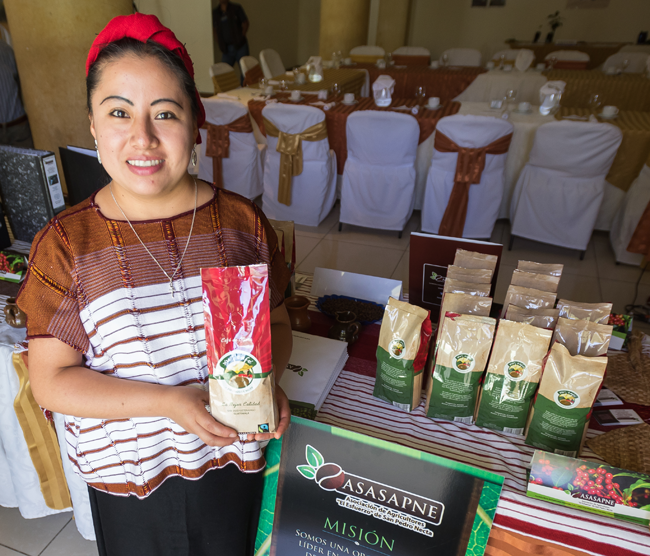
Deisy Martinez holds up a bag of Café XU’J coffee, a specialty line from the ASASAPNE group.
Deisy Martinez, a 25-year old ASASAPNE member, was chosen to be the face of this new brand. Deisy, a widow, is raising her two children on her own. Each bag of coffee features a picture of Deisy and tells her story and that of the other women in her community. Sold under the name “Café XU’J,” or “Women’s Coffee,” the all-organic, women-produced coffee is sold at a much higher price in upscale markets in Italy, Taiwan, Japan, and the United States. The coffee sells for $325/100lbs, as compared to $145/100lbs for ASASAPNE’s standard coffee. ASASAPNE’s female members have worked with a marketing consultant to develop their story into an effective brand strategy and high-end product, helping to establish themselves as leaders within the Association. This gives their daughters and the next generation hope that women can be leaders of change within their community.
ADIESTO
Another woman I met with Magda Saucedo Morales, is the President of the Adiesto Coffee Association. Much like ASASAPNE, Adiesto is a coffee association with 515 members. Adiesto’s membership is made up of 48% men, 52% women.
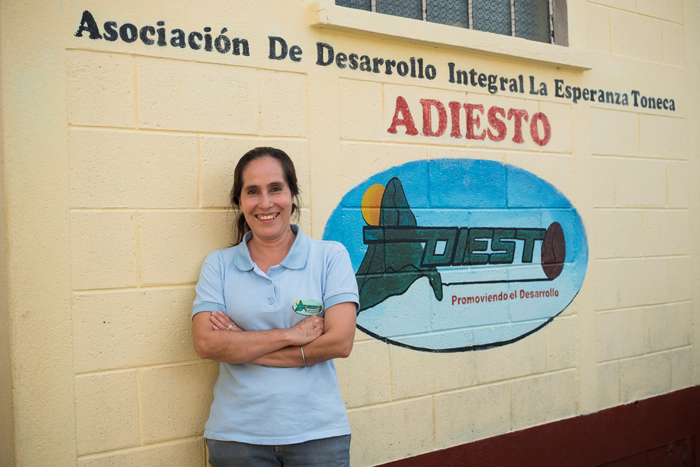
President of the Adiesto Coffee Association, Magda Saucedo Morales.
After growing up helping her father produce coffee, in 2002 Magda gave up making clothes for a living and decided that she wanted to follow her passion and work in coffee production. She rose in ranks from a promoter, to a trainer, to secretary, until finally being elected President in 2014. In her leadership role, Magda represents Adiesto at trade shows and markets, working closely with her Board of Directors to grow the organization. On our visit, I saw the fruits of her labor – a new coffee roaster and grinder, purchased with support from Counterpart.
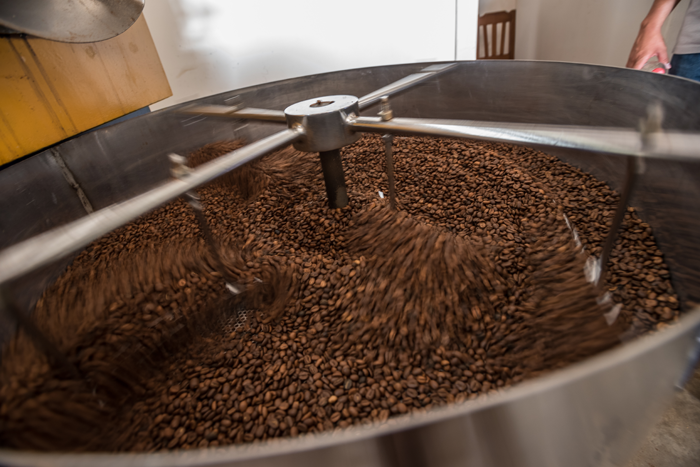
Selling prepared (roasted and ground) coffee is worth 50% more at local markets than the green coffee that Adiesto previously sold. Now, under Magda’s direction and with technical support from Counterpart, Adiesto members bring their coffee beans to the association warehouse to be roasted, ground, and prepared for sale. The profits are then divided among the members, ensuring an increasing income for the whole community.
Magda’s 11-year-old son wants to follow in the family tradition. With his mother’s guidance, on weekends and during the summer, he has joined a training program by ANACAFE, the National Coffee Association of Guatemala, that teaches the next generation how to produce coffee. “He wants to study agronomy,” she told me proudly, pointing out the picture of her son on her desk. “He wants to improve coffee prices in Guatemala so we don’t need to work so hard.”
As I sit in the café, remembering these amazing women, drinking my Guatemalan coffee in the middle of Belgium, the world feels very small and the future bright. Cheers to that!
To date in Guatemala, Counterpart has provided 226 organizational development trainings to farmers, and 124 farming cooperatives across all levels of production in industries ranging from coffee to vegetables to livestock. Counterpart looks forward to working with these communities, in partnership with USDA, for many years to come. We are committed to helping these organizations increase sustainable agriculture yields that will improve family nutrition and increase family incomes.
With generous support from the United States Department of Agriculture (USDA), Counterpart International is working in more than 35 communities across Guatemala, providing training and capacity building to increase sustainable agricultural techniques in rural communities, increase production, and improve livelihoods of indigenous rural farmers. From August 7th through 13th, Alexandra Frank, Counterpart’s Senior Officer for External Relations, traveled to Guatemala to visit a variety of our Food for Progress program sites, and hear stories from program beneficiaries and partners throughout Guatemala City and the Western Highlands. During the next eight weeks, we will feature stories and photos of our amazing Guatemalan partners on our blog every Tuesday.



